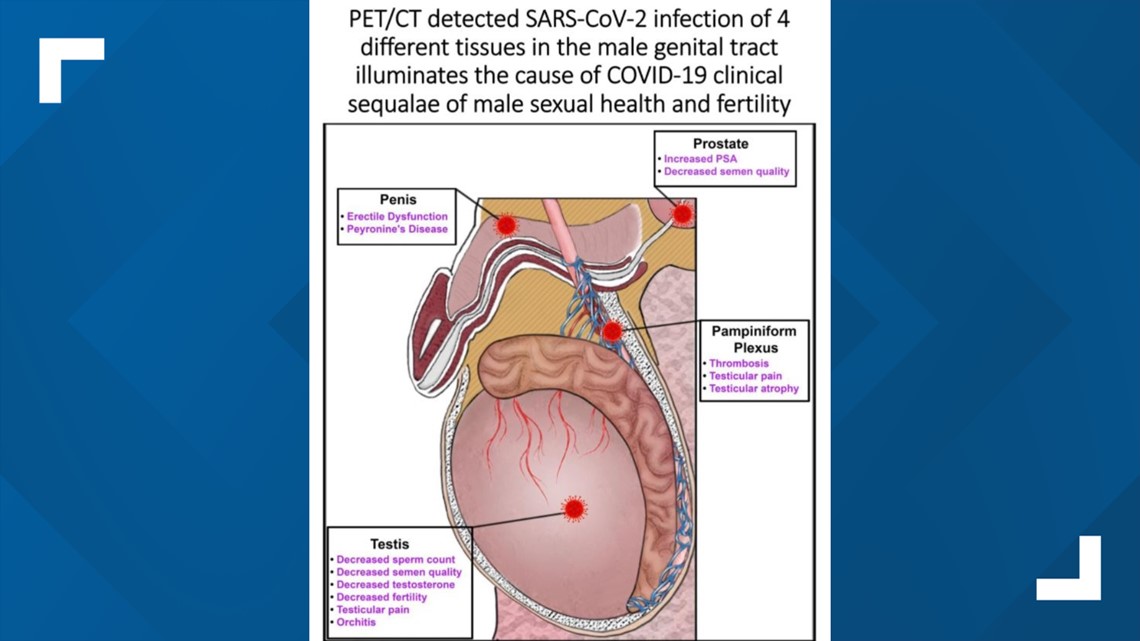NEW ORLEANS — A recent study says the coronavirus may infect four areas of the male genital tract, and that points to possible impacts to male fertility from COVID-19, a report from The Times-Picayune | The New Orleans Advocate said.
COVID infected the penis, prostate, testicles, and a network of temperature-regulating veins in three male rhesus macaques, a report from The Times-Picayune | The New Orleans Advocate said.
The study comes from the Tulane National Primate Research Center in Covington, a 500-acre complex with more than four thousand primates, according to the newspaper.
Researchers expected to find the coronavirus in the gut, like other similar viruses, but that's not where they found the virus, according to Ronald Veazey, a professor of pathology at the Tulane University School of Medicine and an author of the study.
“Surprisingly, the male reproductive tract lit up like a Christmas tree,” said Veazey. “We weren’t even thinking male – it just happened to be a male macaque.”
The study is a preprint and has yet to be peer-reviewed.
It also doesn't address whether the effects on the male organs are long-term or whether the high viral load corresponds to symptoms like pain, erectile dysfunction or low sperm count.
Still, it adds evidence to a growing number of reports linking COVID infection to male reproductive issues.
Male reproductive organs have a large network of blood vessels and a high number of ACE2 enzymes, which the coronavirus uses to bind to cells. It made sense that that area would see a higher concentration of coronavirus, Veasey told The Times-Picayune | The New Orleans Advocate.
“What tissue in the body would be the most responsive and have the most expansion and contraction? The penis,” Veazey said. “It’s a major target.”





